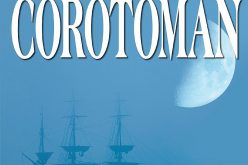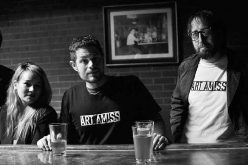Parking Redux
Council, city staff tweak pay program, hear comments
By Richard Davis
TFW Staff Writer
Despite playing to a crowded house, the Fayetteville City Council heard zero public comments Tuesday night — on its regional urban stormwater education program.
Parking? Well, that set some lips to flapping.
The council’s actions Tuesday night (Dec. 7) played out largely as expected. Aldermen 86’d a sunset clause in the ordinance, the end result being pay parking hours will remain from 2 p.m. to 2 a.m. Some changes were made to residential parking provisions. The council OK’d $5 as the cost for all-day parking and gave their seal of approval for a flat $15 fine for each overtime parking violation.
The only unanticipated tidbit in the council’s tweaks came from Alderman Robert Rhoads who proposed the option to buy an annual pass in the form of a $600 sticker. While the sticker wouldn’t guarantee buyers a space and couldn’t be used in a residential-designated spot or any of the gated parking areas — in particular, the big lot between the Walton Arts Center and George’s Majestic Lounge — council members liked Rhoads’ amendment and approved it unanimously.
This led to a suggestion during public comments by one speaker to create an annual pass program for workers employed in the Entertainment District. The suggestion seemed to be warmly received, and aldermen directed city staff to explore the logistics of such a program.
The council did not — shock, surprise — decide to kick to the curb a program the city has already spend more than $800,000 on to implement. City staff — including Don Marr, the mayor’s chief of staff — did spend at least an hour going over a thorough and impressive PowerPoint presentation on revenue generated by pay parking, tweaks made to the parking program, complaints received, efforts made to address complaints and the city’s ongoing efforts to make adjustments to the plan.
Comments from the public, representatives of interested parties, council members and even Mayor Lioneld Jordan ranged from fiery to calm and collected to defiant to supportive to rambling to off topic and even to nearly incomprehensible. Here’s a sampling of some of the discussion from the meeting.
▲ Julie Sill, one of the owners of Hog Haus and Common Grounds, calmly and rationally represented Downtown Dickson Save Our Street Society with requests for continued and monthly reviews of data regarding parking over a 365-day period.
“Parking is not the only reason that we’re seeing declines in our businesses, I can agree with that,” Sill said. “We need to find a sweet spot to make it a win-win for everyone involved — our customers, the city, the Walton Arts Center and the merchants.”
▲ Bruce Walker of Flying Possum Leather voiced anger and frustration at the program:
“I hear complaints about it all day long. It doesn’t make any difference if I’m on Dickson Street or at the Quick Stop getting gasoline — the girls at the counter, she’s talking about how people come in talking bad about Dickson Street — this parking situation.”
“You could have put that million dollars on building a parking deck and been done with it. My suggestion is to put a sack over the head of this whole parking plan and the meters and put this thing up for a vote and let the citizens of Fayetteville decide if this is fair and if this is what they want to have happen. This is just a crying shame, what’s happening in Fayetteville. Merry Christmas.”
▲ Terri Trotter, chief operating officer for the Walton Arts Center, was appreciative of the city’s efforts.
“We certainly appreciate the continuing effort to deal with this. Implementation of anything new is a challenge. It will always be a challenge, and change is very very hard. And I think it’s important that we continue to look at that.
“I know from our standpoint, we’re really beginning to figure out how to figure out the impacts and how to work with our patrons and what’s something that they can overcome and what is something that they can’t. And I can’t tell you what that is yet. Ninety days is really a pretty short period of time to figure out all the impacts.
“I hope that we can continue to have dialogue to find ways to make this program as good as it can be. But it’s something that’s needed in this city, and I think we need to continue to stay focused on that, and I appreciate you all for doing that. Thank you.”
▲ A bartender from Smoke & Barrel Tavern calmly spoke of his perspective on the parking program.
“It’s not just the money, it’s the experience,” he said of complaints he’d heard from customers. He also spoke about city’s discounted price for employee parking.
“It’s not a discount to pay $1,000 a year — that’s how a lot of people would average that out — to go to work.”
▲ Steve Clark, Fayetteville Chamber of Commerce president, reiterated his organization’s support of the plan (not to mention solidifying his reputation as a speaker on par with the likes of Bill Clinton).
“I compliment you on your leadership in addressing an issue that is real and is present and has been ever present in our city. Parking is a concern. It didn’t become a concern this year. It has been a concern continually, at least for a decade and likely for more than that.
“When I stood before you before, I said your Chamber of Commerce supported the adoption of a parking ordinance, supported the concept of using the revenue from that to build a parking deck and supported the concept of using additional revenue to support the growth of arts being used — in particular the Walton Arts City … as being important to the economic vitality of our city.
“We went back on record again yesterday, unanimously, to say to you tonight, that what you have done with your leadership is good for our city and that what you have done in your leadership will help our city continue to address needs that it has now and the needs it will have in the future.”
▲ One of the owners of Feltner Brothers was mostly calm in his delivery but was clearly frustrated.
“I know my October-November numbers aren’t better than last year,” he said in response to the city’s figures showing HMR taxes at 7 percent better for September and October in 2010 compared to 2009 in the Dickson Street area. He said he knows the numbers at his establishment are not as good as the previous year. “We’re not making it up. We’re just not making it up.
“I know if my tables looked as empty as that parking lot every day, we’d be out of business. Our (parking) demand here in Fayetteville does not exceed our supply. I look out at that parking lot every day, and I don’t see how revenue goals are being met.
“The city of Fayetteville doesn’t need pay parking. It needs people to park in those spots.”
▲ Mayor Lioneld Jordan was resolute, passionate and maybe only a little bit defensive in his comments supporting his belief that the city of Fayetteville needs a publicly owned garage for parking.
“We had 16 public meetings, and I know for a fact that I personally met with the business owners at least on four different occasions. We brought this to this council and spent six weeks in debate on — what was it? — seven ordinances and whatever amendments went with it. And we didn’t much … you didn’t say too much.
“And then when we initiated the parking, then nobody wanted it anymore. Nobody wanted a parking deck anymore. Wanted to wait 10 years or 15 years. The time for that parking deck is now. If we needed that parking deck 10 years ago, you’re going to be putting in at least a 600 seat addition down there, how much more do you need it now?
“And I want to tell this council tonight, I know the flak you’ve taken, because I’ve taken the same hits you’ve taken — I can assure you of that. And so has my staff, which I will always be so grateful to.
“No, it may not be perfect. No, everybody may not like it. But somewhere, we need to turn that corner and decide to build that deck for the future of this city. And I want to thank you all for your political will and your strength in this and your support.”






